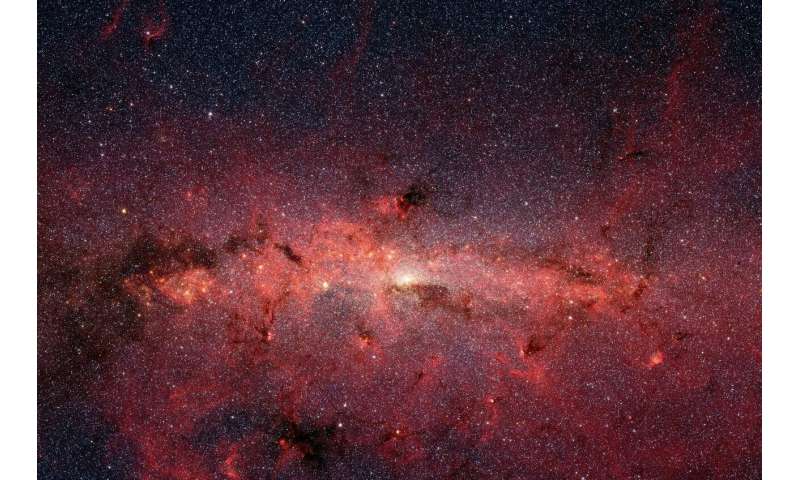Best of Last Week: Active volcanoes on Venus, heart impacts of COVID-19, and blood sugar and aerobic exercise

It was a good week for space research, as a team studying data from the European Southern Observatory's Very Large Telescope reported the first image taken of a multi-planet system around a sun-like star, TYC 8998-760-1. The system was measured to be approximately 300 light years away, and it has at least two giant exoplanets. Also, a team working on the Sloan Digital Sky Survey released an analysis of the largest three-dimensional map of the universe ever created—and in so doing, filled in 11 billion years of the universe's expansion history. And a combined team from the University of Maryland and the Institute of Geophysics at ETH Zurich discovered that volcanoes on Venus are still active—evidence that the planet itself is still geologically active.
In technology news, a combined team from the Department of Energy's Lawrence Berkeley National Laboratory and Carnegie Mellon University reported a battery breakthrough that will give a boost to electric flight and long-range electric cars. And a team at the University of Science and Technology Beijing developed what they describe as a self-powered user-interactive electronic skin for programmable touch operations. Also, an international team of engineers built and flew a drone prototype that mimics the aerobatic maneuvers of one of the world's fastest birds, the swift. The 26 gram ornithopter featured flapping wings and was able to hover, dart, glide, brake, and dive. And a consortium made up of researchers from the Joint Food and Agriculture Organization of the United Nations / International Atomic Energy Agency Insect Pest Control Laboratory, WeRobotics and Biofábrica Moscamed Brasil, announced that they had developed a system to apply sterilizing insect techniques using unmanned aerial vehicles to reduce disease carrying mosquitos.
In other news, a team at the University of Bologna found evidence showing that Neanderthals of the Western Mediterranean did not become extinct because of changes in climate. Stalagmites in a cave in the area showed that climate changes that happened during that time span were not particularly significant. Also, a team of pathologists at LSU Health New Orleans found during autopsies that there are sometimes surprising cardiac changes in COVID-19 patients—such as unique patterns of cell death in scattered individual heart muscle cells.
And finally, if you are one of the millions of people around the world trying to take your doctor's advice by engaging in regular aerobic exercise, you might want to check out the work done by a team at Joslin Diabetes Center. They found that increased blood sugar levels may decrease the benefits of aerobic exercise.
© 2020 Science X Network